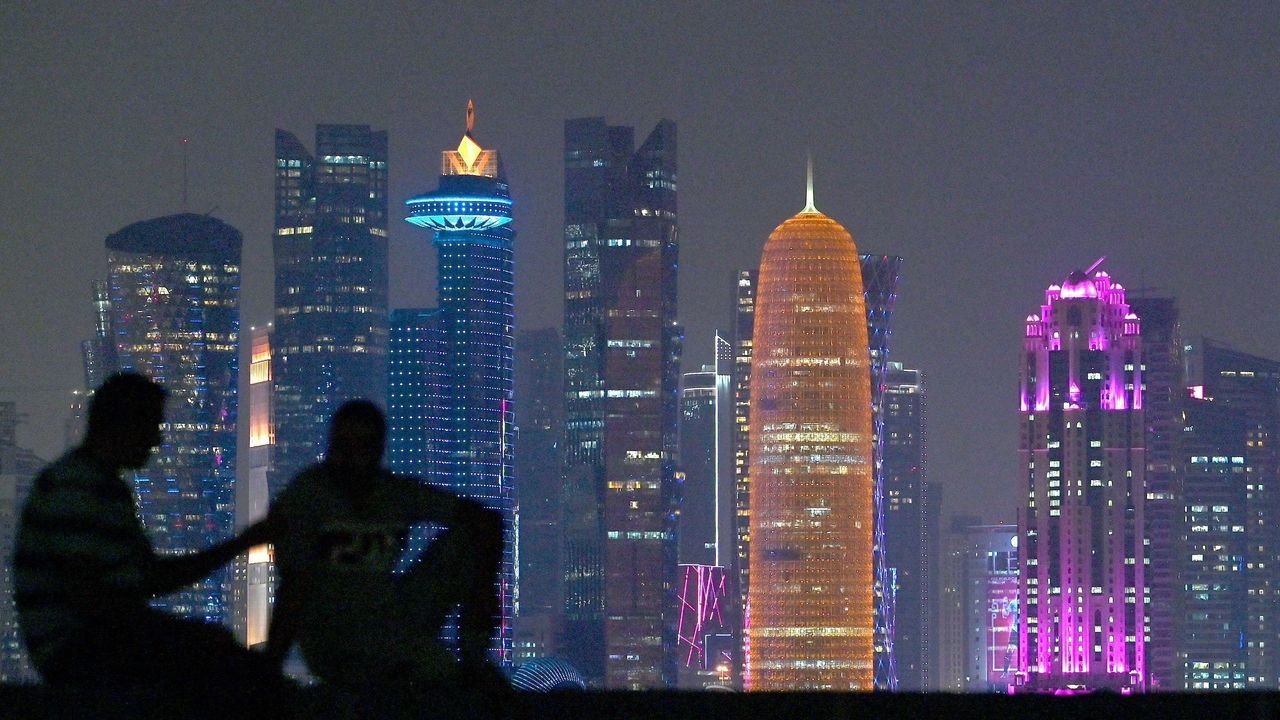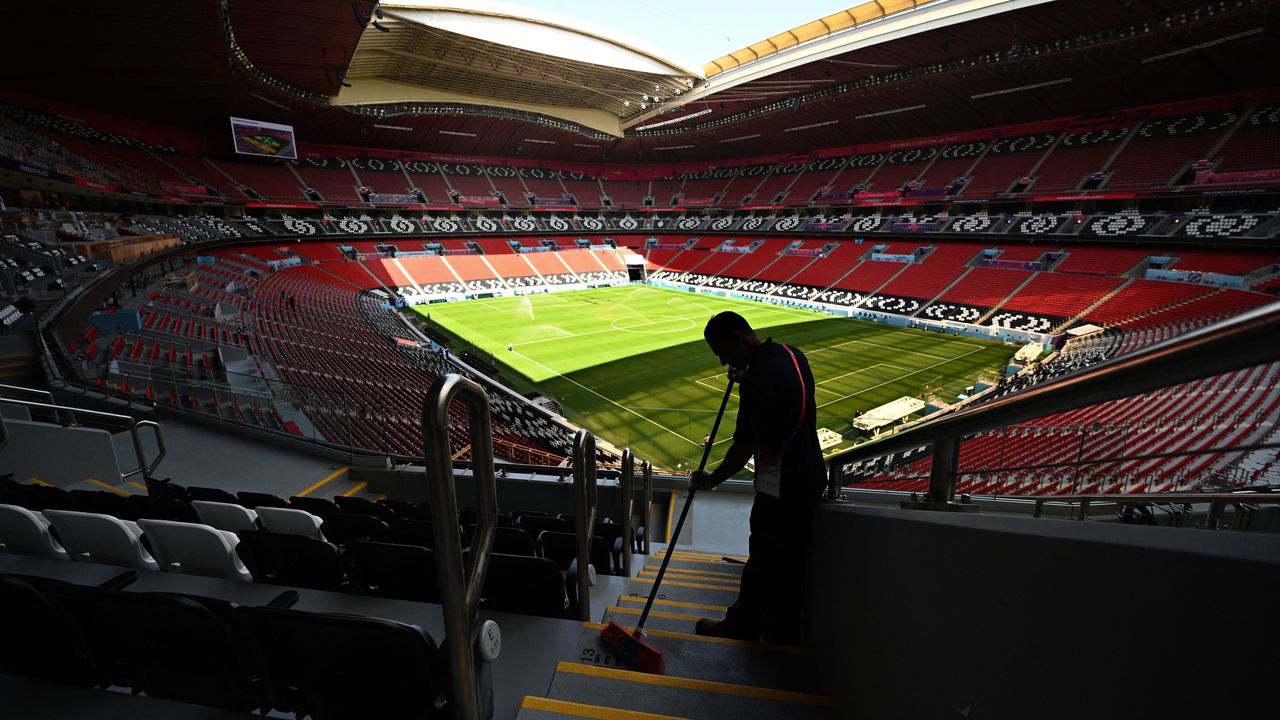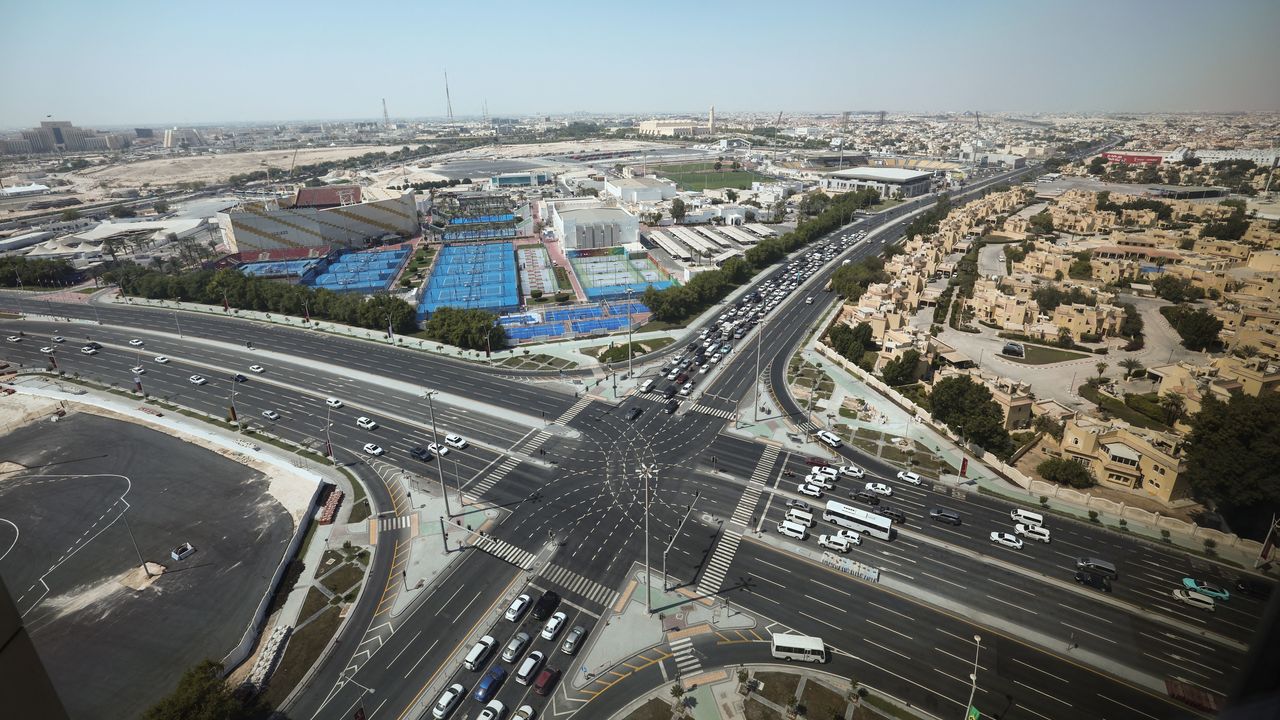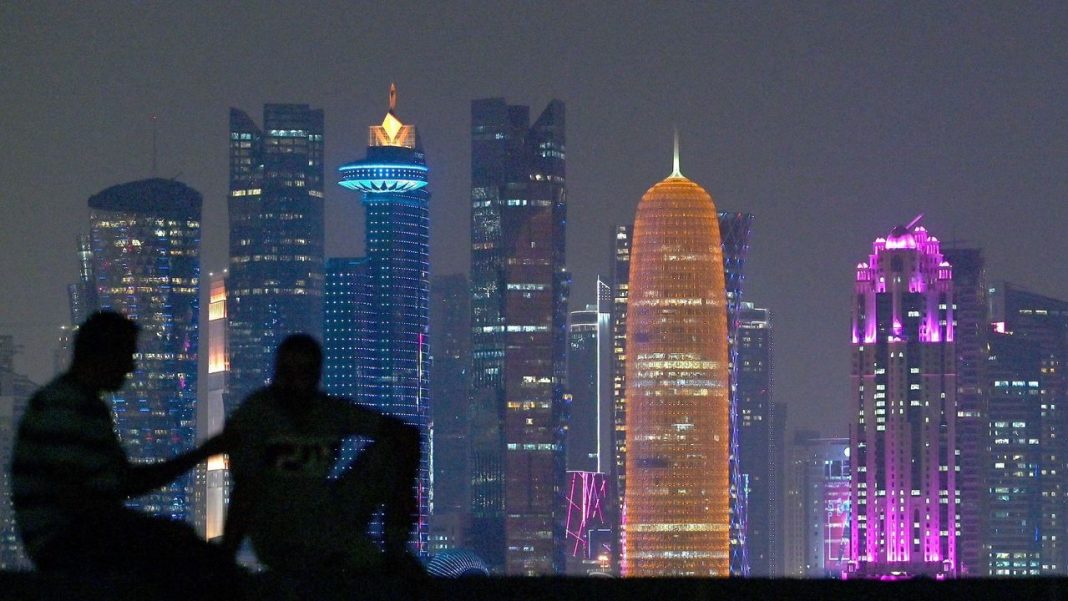When The Washington Post and The Wall Street Journal reported a particularly negative story about Qatar – one of many in the lead-up to the 2022 World Cup, which begins Sunday against the backdrop of allegations of corruption and reports of widespread human rights abuses – the Gulf nation told one of the PR agencies it hired to do one thing and one thing only: pay them off.
The agency never did. It told Qatar that only meaningful change – to the hazardous conditions that led to more than 6,500 deaths in the last 12 years, and to the critically low wages and backwards labor laws that sparked international outcry – would make the bad press go away.
Qatar tried to tackle some of these issues. It began working with the International Labor Organization in November 2017 to improve its laws. It prohibited work in the searing afternoon heat, and set up the Supreme Committee for Delivery and Legacy to monitor working conditions at World Cup sites. The country also promised to scrap the heavily criticized kafala system, which prohibited workers from switching jobs without their employers’ permission, making them de facto slaves to their sponsors.
But how much change was real and lasting? How much of it was posturing?
John McManus, a social anthropologist from Leicester, England, uncovered the truth in his book, “Inside Qatar: Hidden Stories from One of the Richest Nations on Earth,” which he wrote after visiting the country in 2018, 2019, and 2020. McManus met and interviewed dozens of taxi drivers, contractors, religious leaders, state officials, and laborers earning less than $300 per month to understand what made Qatar such a social pariah – and how the World Cup could possibly inspire change, if any at all.
“I was struck firstly by how little interaction there was between different groupings of people. In some ways, it makes more sense to speak of Qatar in the plural, as in there are many Qatars, and they don’t always overlap or interact with each other,” McManus told theScore. “I didn’t fully realize that until I was in the country in my own little self-prescribed Qatar.”

Those flocking to Qatar for the World Cup can expect opulent hotels, pristine walkways, sun and heat, and all the amenities one of the wealthiest nations by GDP per capita has to offer. The migrants who put the country together in just two decades’ time live in their own bubble, in small dormitories that sometimes house eight people at a time, and can only dream of tasting the fruits of their own labor.
To uncover all the layers of Qatari society, McManus left his comfort zone and stepped into theirs. Only then did he learn about the lives the desert state forgot.
For one, Qatar’s Supreme Committee only offered protection to the 35,000 migrants who worked directly on World Cup projects, leaving the remaining 96% of the workforce in the dark, without the benefits its new laws conferred to workers in the spotlight. McManus reported that non-payment of wages exploded from 588 violations in January 2020 to 8,756 later that June. Employers still held migrants hostage, forcing them to work under the threat of deportation.
It seemed apparent to McManus that the new laws only served a symbolic function: to show the world Qatar was on the path to reform, even if it really wasn’t.
“I would like to think that the reforms and the scrutiny and the effort that have gone into changing things to date takes a foothold, and post-World Cup that can be built on to improve the situation,” he said. “But the fact that there are still significant problems in terms of implementation of these reforms and scrutiny and enforcement is worrying. If that’s the case when the scrutiny is still on, it doesn’t bode well for afterwards.”
Still, Qatar forged ahead, spending more than $220 billion to build highways, subway stations, climate-controlled stadiums, airport add-ons, and skyscrapers on reclaimed land. It needed architects to design these buildings, engineers to oversee construction, lawyers to draw up contracts, consultants to advise the government, TV directors to produce news channels, and coaches to reshape the country’s football program ahead of the World Cup. These pursuits trumped anything it did on a humanitarian level. Glass ceilings remained firmly in place.

Take the falconer McManus met in his travels. Named in the book only as Nasser, he’s one of only 313,000 Qatari citizens who make up 11% of the actual population. It’s an exclusive club. Only Qataris can own and operate falcons, and flying them is considered a national pastime. Each costs $35,000, and Nasser owns many of them. His Bangladeshi helper, as he calls him, only makes around $500 per month – or about 1.4% the cost of a falcon.
Then there are the taxi drivers who navigate the increasing stop-start traffic in Doha and make barely enough to cover their expenses. The cost of renting a car, maintenance, rising fuel, and food and accommodations means they must work 12 hours a day, seven days a week to just come out on top. Most of them are in Doha only to capitalize on demand during the World Cup. They have no plans to stay after the tournament.
Seeing the city through the window of a cab is revealing in and of itself. McManus recalled the “ill-tempered, fume-ridden crawl” during rush hour, which tends to start at 2 p.m. local time and run into the evening. Passengers can see all of Qatar’s building projects, both finished and unfinished, and its high-rises in all their architectural wonder.
Taxis move all kinds of people. The Pearl, the country’s most extensive district, attracts wealthy expats willing to pay a 100% “sin tax” on alcohol. Well outside the city limits, parishioners head to the strict confines of a religious compound, known simply as Church City, a place removed far enough from daily life to avoid offending Qataris. Fans may even find accommodation in a glorified trailer park with nearby access to World Cup stadiums and – crucially – air conditioning, the lifeblood of a country with temperatures regularly above 40 degrees Celsius/104 degrees Fahrenheit.

For many, their relationship with Qatar is purely transactional. Citizenship is impossible to attain outside of traditional Qatari families. Employers continue to sponsor migrants, but as soon as work dries up, many migrants have no choice but to leave.
“There’s that precarity to life in Qatar for 89% of the population,” McManus said. “That precarity is at the root of so much of how Qatar functions today.
“For me, it was fine. I was quite happy not to have roots or citizenship there. I was always going to leave. But for lots of people I met who were born there, who grew up there, it is home for them, and yet if their parents lose their job or their studies come to an end and they can’t find a job, they’ll have to leave for another ‘home,’ which they don’t feel they belong to very much.”
Traveling west to the suburbs of Doha, McManus eventually found the crown jewel of Qatar’s World Cup campaign: Aspire Academy, a sprawling, air-conditioned complex that houses football pitches, gyms, basketball courts, and an Olympic-sized swimming pool. It also has a school and dormitories. Here, Qatar developed the players who helped the national team win the Asia Cup in 2019, carrying it to as high as 42nd in the world from 113th.
Imagine Leicester City winning the Premier League with homegrown players, one coach who worked at Aspire for 13 years told McManus. The academy had indeed done something incredible, not only ending Qatar’s reliance on hired guns and foreign-born players but cultivating talent from a pool of only a few thousand athletes. Qatar monitored even the worst of the bunch, and those who struggled left with at least an education.
But Aspire is a clear outlier in Qatari society, an institution that favors long-term planning and patience in a country built on inequality, instant gratification, and token gestures.
“Like many people from Europe, the Qatar that was available to me was a pretty enjoyable place with lots of amenities, freedom of movement, and lots of fun to be had,” McManus said. “As I branched out and tried to understand the Qatars of other people, I experienced through them just how those other worlds in the country are, for lack of a better term, not so good.”
